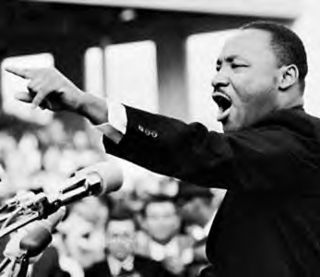Simon Sinek's Blog, page 3
October 11, 2012
Why We Need Each Other
 I try, try, try and fail. Only then will I learn and improve the way to do things.
I try, try, try and fail. Only then will I learn and improve the way to do things.
I go, go, go and trip. I stand up, brush off my knees, look back at what I tripped over so I know what to look out for in the future. Now I don't have to trip over those things again.
I run faster and faster and faster, then miss my turn and have to go back and try again. But now I know what signs to look for to keep me moving in right direction.
I go alone, alone, alone until I find someone on the same path and we decide to run together. I share all my falls, trips and missed turns so they can benefit from my effort. They tell me about all their falls, trips and missed opportunities so I can learn from their experiences.
Then together, we can run faster, straighter and more confidently to the place we want to go.
August 29, 2012
How To Innovate Like A Shark
In 1975 a young director with no big films credits under his belt, set out to make a horror film. Steven Spielberg wanted his film filled with violent and gory shark attacks. He wanted us to watch as this massive animal, built to kill, would attack his unsuspecting prey. But there was a problem. The mechanical sharks that were supposed play a staring role in the film rarely worked as expected. As much as the young director wanted graphic shark attacks, he couldn't have them.
 Frustrated, the team found another solution. They left most of the violence to our imaginations. Viewers would see a fin, then someone would disappear under the water, and then the water would turn red. That's it. In other scenes, we wouldn't even see a fin, we'd see a yellow barrel surfing across the water, knowing that it was a shark, deep below, towing the rope attached to the barrel towards the next victim. The effect was so scary and so powerful, it influenced our entire society.
Frustrated, the team found another solution. They left most of the violence to our imaginations. Viewers would see a fin, then someone would disappear under the water, and then the water would turn red. That's it. In other scenes, we wouldn't even see a fin, we'd see a yellow barrel surfing across the water, knowing that it was a shark, deep below, towing the rope attached to the barrel towards the next victim. The effect was so scary and so powerful, it influenced our entire society.
Though people were of course aware of sharks prior, there was little thought given to them when they went to the beach. After Jaws, however, there was a significant increase in shark hysteria that remains to this day. The funny thing is that there are more people killed by dogs each year than have been killed by sharks since they started counting sharks attacks.
The brilliant way in which Spielberg told the story of Jaws did not happen in a brainstorming session and it was certainly not planned. It was the solution he found when what he wanted wasn't possible. The malfunctioning robots forced him to find another solution.
We have a false belief that innovation happens with lots of money and resources. In fact, the opposite is true. It is a lack of resources, it is a lack of money, it is after something goes wrong are we able to truly innovate - to truly re-imagine how something could work. This is why large companies rarely produce truly innovative products - because they have the money and resources to build anything they want. The problem is, the things they want aren't that innovative because they weren't hindered or forced to find new ways. Small businesses, in comparison, are where big ideas happen. Slim on money and resources, they figure out how to make something work with what they have. Then big businesses buy the small businesses for their big ideas.
To be clear, Spielberg was also a student of film. Without his mechanical shark, he was able to defer to his knowledge. He knew the techniques that Alfred Hitchcock used in his movies to build suspense - foreboding music, simple details and an view of the aftermath. The suspense, Spielberg knew, happened in our imaginations, not in our eyes. Though he knew this, he didn't need to tap that knowledge until he had to. And that's where having less produces more. There are plenty of smart people at large companies who don't tap their brilliance because they don't need to. They have all the resources they need. Smart entrepreneurs, in contrast, have no choice but to rely on their smarts and that's why they can run innovation circles around large companies every single day.
Innovation is not born from the dream; innovation is born from the struggle. Innovation, at its core, is not simply about building the future; innovation is about solving problems in the present. And the best innovations, just like the shark in Jaws, is often something we don't even know is there.
August 21, 2012
What's More Important, The Sale Or Your Reputation?
One definition of a prostitute is someone who sacrifices their good name in order to make a buck. But what do you do when someone else is driven by the sale but it is your reputation that suffers as a result?
This is the risk run by any company that relies on a third party to sell their product. Franchisees, car dealers, distributors and affiliates are independent businesses that trade off of someone else's reputation. If a regional airline, for example, offers bad service it is not their company or their brand that is damaged, it is Delta, American or other brand name that appears on the side of the plane.
This is the case with car dealers also. And I recently had an experience at Fiat of Manhattan that was nothing short of mind-blowingly bad.
I walked in, very excited to get a little Fiat 500. I told them that I was prepared to make this the easiest deal of their day. I even told them that I already looked up the price on the Fiat website and was willing to pay it. No haggling required. Four hours later - that's right, FOUR hours later of being put through the ringer, guess where we ended up - right at the beginning, at the original price I offered to pay.
In the process the branch manager insulted me, took me for a moron and would try to raise the price hoping I wouldn't notice. Lies, deception, fast talk and every other tactic usually reserved for a stereotypical used car dealer were employed. I'll save you all the gory details including the tale in which I was told, "I just talked to my boss and he said I can offer you the price you want," which sounds good except she never left her seat the whole time we were talking.
The result: I felt frustrated, angry and dejected. My excitment was gone. Even when I went to pick up the car - my excitement restored, they made me wait an hour and a half despite the fact I called in advance and they told me what time to come in. Instead of asking me if I was excited and pumping me up to take possession of my new Fiat 500 - they made sure to tell me that I "made them work hard" and they weren't making any money on me - a clear indication of their priorities.
It was clear that this dealership is motivated by one thing and one thing only: the sale. Worse, it's not their name that hangs on the door. Whoever owns that dealership suffers nothing except maybe I wouldn't recommend the dealership to anyone. The name that suffers is Fiat.
So why didn't I just buy the car somewhere else you ask? The dealership has a deal with parking garages in Manhattan, offering really cheap parking. If other dealers in the area offered something similar (I checked, they didn't), I would have bought the car somewhere else. But given the price of parking in NYC, this was a big deal. Such a big deal, in fact, that even getting a bad deal on the car still works out cheaper than paying full price for a garage.
The dealership is cleaning up. Manhattan residents who want a Fiat 500 have little choice but to buy the car from this one dealer even if they know they can get a better deal or get treated better somewhere else. The dealer even bragged about their sales numbers, claiming to be the top Fiat seller in the North East. Which is very good for them. Sadly, it is the Fiat brand and the customer that are suffering...not the dealer.
To be fair, I tweeted that this dealership was ruining the Fiat brand and someone from FiatUSA has already tried to contact me to find out what happened. I have not talked to them yet, but I will try to.
It is what happens next that really tests the theory of what is more important, the sale or the reputation. Fiat's initial forray into the American market with the 500 after a 30 year hiatus was disappointing and they are working to make up lost ground. The question is, given that indeed this one dealership may be moving more cars than any other in the region, is that more important to Fiat than the damage that this dealership may be doing to their brand and their reputation? Time will tell.
Whenever we use a third party to represent us, we must hold them to our standards, not theirs. They must earn the right and work hard to maintain the right to use our well earned reputations and good products to make their money. In return, they must promise and adhere to, protect and advance our good names. However, if the parent company fails to hold their dealers and affiliates accountable, regardless of the sales numbers, then they will end up looking like the pimp in this game. And that leaves the rest of us feeling cheap, dirty and used and likely never return to that street corner ever again.
Postscript, October 18th, 2012:
I responded, multiple times, to Fiat's request to talk to me. I let them know that I was happy to take the time to talk to them. They never followed through. I never talked to anyone.
Perhaps the reason this dealer is able to get away with what they did is because they, like the parent company (which is Chrysler), reacted to the negative press and not to the concerns of a customer. Seems to be a trend these days.
July 10, 2012
Without A Vision, We Find An Enemy
The economy is in a shambles. There is a total lack of leadership. Hope is at a minimum. The people feel out of control and, without a sense of optimism for the future, they lash out at anyone who is different from them. These are the conditions that existed in the 1930s that gave rise to Hitler and an extremely xenophobic Nazi Germany. The problem is, I'm not describing pre-war Germany, I'm describing modern day Greece.
 Societies, like individuals, need to know where they are going. We all need to feel like the work we are doing is advancing some cause or purpose. To feel that the lives we lead and the jobs we toil have meaning and value beyond the daily act of breathing or monthly routine of paying the bills. Great societies, like great companies, have a bold sense of the future and they employ the population to help build it.
Societies, like individuals, need to know where they are going. We all need to feel like the work we are doing is advancing some cause or purpose. To feel that the lives we lead and the jobs we toil have meaning and value beyond the daily act of breathing or monthly routine of paying the bills. Great societies, like great companies, have a bold sense of the future and they employ the population to help build it.
When that bold sense of the future is absent, however, we become obsessed not with building our future, but with attacking those who, we believe, would prevent us from doing so. Instead of taking responsibility for our own state, we blame others for the state we are in. Worse still, there are opportunists who would capitalize on the rallying crowds to consolidate their own power. They feed the frenzy, they stir the paranoia not because it's the right thing to do, but because it helps them get elected or gives them a leadership position they have not earned.
This is exactly what happened in Nazi Germany. This is what has happened countless times in many Arab dictatorships and this is what's happening in Greece. Worse, this is not a tail of foreign problems. These are also the conditions in America. Democrats blame Republicans for everything. Republicans blame Democrats for everything. Both sides seize opportunities to feed public furor and consolidate power. They talk about serving the people with terms like "winning" and "defeating." Last I checked, service had nothing to do with winning and defeating - those are words reserved for games and wars.
Greece needs a leader, from inside or outside politics, to paint a bold, optimistic view of what the country could be and challenge the population to help build that vision. Egypt needs to paint a bold, optimistic view of what the country could be and employ the population to help build that vision. America needs someone, anyone, to paint a bold, optimistic view of where we're going, not obsess about the state we're in. Then leave it to us. Give us something to work towards, something big, and we will build it. Without it, we'll just find someone to blame for how we feel. And it won't be nearly as pretty.
July 4, 2012
We Have A Legacy To Uphold
On this July 4th, it is important for us to remember what we are celebrating. Yes it is the birthday of our nation, a day for family, BBQs and fireworks. But the reason we have this birthday to celebrate is because of the undying belief of some remarkable people who lived before us. Our founding fathers and their supporters believed that there was a better way to live. An alternative to living under the absolute control of an oppressive regime.
 "We believe that all men are created equal," is how they put it. That every man and woman has the right to choose their own path. We have the right to live free of fear, free of oppression and free to pursue what makes us happy. They believed this with such conviction that they were willing to lay down their lives to see it made real.
"We believe that all men are created equal," is how they put it. That every man and woman has the right to choose their own path. We have the right to live free of fear, free of oppression and free to pursue what makes us happy. They believed this with such conviction that they were willing to lay down their lives to see it made real.
This is what we are celebrating today.
We are celebrating what those who came before us have given us. It is something extremely valuable; something to protect and nurture.
For generations after our country's founding, others have sacrificed and risked to imagine, invent and advance this great experiment. And, on some occasions, there are those who ran to the sound of the guns to defend it. Let us today, remember all the hard work, the blood, the sweat and the tears of the pioneers. Those who traveled across the nation from the East Coast to California. Lets us honor all the inventors who toiled in their laboratories, the creatives who imagined and the visionaries who guided the way: the Alexander Bells, the Benjamin Franklins, the Henry Fords, the Thomas Edisons, the Orville and Wilbur Wrights, the Abraham Lincolns, the John F. Kennedies, the Ralph Waldo Emersons, the Walt Disneys, the Walter Cronkites, the Thomas Jeffersons, and all the others whose names history did not record.
They all invested in this nation because they believed in it. It is our responsibility to not let their sacrifice and their hard work be in vain. We are an optimistic and pioneering people and we must do a better job of fixing our government, fixing our economy and mending our divides not for our children but for our ancestors. We can not let them down.
Enough pointing fingers and enough blaming others for our situation. It is not about government's responsibility or a corporation's responsibility or Republicans or Democrats. It is OUR responsibility - we the people.
Those who came before us, all those who made this nation great, took responsibility to do something. Now it's our turn.
Wishing everyone a very happy Independence Day.
July 2, 2012
Don't Trust Companies Who Put Customers First
“Our customers are our number one priority,” is the oft heard mantra of so many companies these days. “We put our clients first,” is uttered by so many CEOs one loses track.
But there’s a problem with putting customers first. It means that employees come at least second.
 Customers should never be the priority…people should be the priority. Some of those people buy from us, some of those people work for us, it’s only a behavioral difference. They are all people and all business decisions should be made considering the impact on the people who are on the receiving end of our decisions.
Customers should never be the priority…people should be the priority. Some of those people buy from us, some of those people work for us, it’s only a behavioral difference. They are all people and all business decisions should be made considering the impact on the people who are on the receiving end of our decisions.
Splitting the population into distinct sects – employees and customers – and having different standards and policies for each is nothing short of racism. To treat one group better than another simply because of who they are is something Martin Luther King Jr. rallied against decades ago.
I have a dream! I have a dream that one day, customers and employees will both be treated equally and treated well. Not because of what they do or how they are seen but because they are both people. Customers and employees both bleed red. Customers and employees both feel happy and hurt. Customers and employees both live to feel valued for the effort they exert and the expense they put forth.
This is the new civil rights movement. People are the priority.
P.S. For those who think numbers come before people, regardless if they are customers or employees, I hope you never have to check your child into a hospital run by someone who agrees with you.
June 21, 2012
There Are Fates Worse Than Death
Lt Col. Mike "Johnny Bravo" Drowley is an Airman in the United States Air Force. Lt. Col. Mike Drowley believes there are fates worse than death. It is his undying commitment to others that guides his actions and decisions. He has bravery like few others we meet in normal society. He has humility like few others we meet in normal society. His character is very typical of many of those who put on a uniform and volunteer to serve a cause bigger than themslves.
I am proud to share this video with you from the first ever TEDx event hosted by a DoD organization. The theme of service rang loud from beginning to end. Unlike other TEDx events I've been to at which many of the speakers are very concerned about getting their talks on the main TED.com site. The speakers at TEDx Scott AFB came for a different reason: to serve. To share their stories with the hope that the things they have learned will inspire more people to put others before themslves.
May his words inspire you.
p.s. As is the case of many of the speakers that day, Johnny Bravo left out some of the details that would make him seem like he was bragging. So I will share them. As a result of his actions in the first story he tells, 22 people went home alive with no casualities. And Johnny Bravo returned home that day with a bullet hole through his wing.
April 24, 2012
Lie To Get What You Want
On this particular night, Michael ordered the soup. “Is it vegetable stock or chicken stock?” he asked the waitress. “Vegetable,” she replied. “Are you sure,” Michael continued, “I can’t have it if it’s chicken based.” “It’s vegetable,” replied the waitress again confidently.
 My friend Michael is a strict vegetarian. He loves going out for dinner with his friends and never complains. He can always find something to eat, he says. When we went out for dinner recently, I witnessed a little trick he uses to ensure he stays a vegetarian when he’s not doing the cooking himself.
My friend Michael is a strict vegetarian. He loves going out for dinner with his friends and never complains. He can always find something to eat, he says. When we went out for dinner recently, I witnessed a little trick he uses to ensure he stays a vegetarian when he’s not doing the cooking himself.
The soup arrived. It looked good and smelled even better. Again Michael asked the waitress, “you’re sure this is vegetable stock, right? Because I’m really allergic to chicken and if there’s any chicken in it I will have a seizure.” And with that the waitress’s eyes got a little bigger. “Lemme just check,” she said as she went off to ask someone else. Within less than a minute, she walked back and took the bowl of soup away from Michael. “It’s chicken stock,” she said.
Until the waitress was accountable for Michael’s health, she didn’t seem too interested in ensuring that her answer was indeed right. The time it took her to find out was seconds. Giving Michael what he preferred didn’t seem to motivate her until she thought she may be responsible for anything more than disappointing a customer.
But this is not a story of how we sometimes have to lie to get someone to care about us. It’s actually something more positive. As soon as Michael shifted the accountability to the waitress, she was much more willing to invest more time and attention to Michael’s needs. In other words, when we make others accountable for what could be even negative results, people rise to the occasion.
We could all do a bit better at giving others accountability for things at work. If we give someone responsibility but then double check their work a hundred times before sending it to the client, then they are no longer accountable…we are. If we demand that someone ask us permission before doing anything, then we are the ones giving permission as opposed to assigning responsibility.
People are funny animals. When given serious responsibility, we tend to take it seriously and almost always rise to the challenge. The best organizations know this well. They don’t assign tasks to their people, they assign responsibility. And with shared responsibility, people tend to seek help from each other more often, increasing the quality of teamwork. The reason is simple, when we work together, we’re more likely to succeed than if we work alone.
It’s the most poetic of paradoxes. The more individual accountability we give to someone, the more they are willing to accept the help of others to ensure everything goes right. Even the waitress knew that.
Download a PDF of this post




